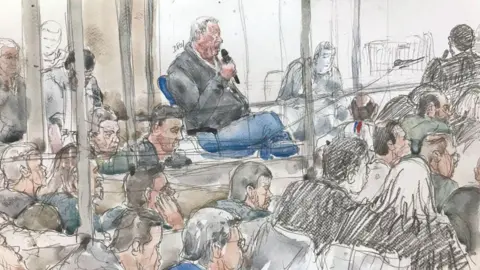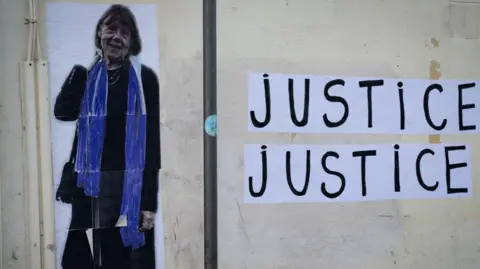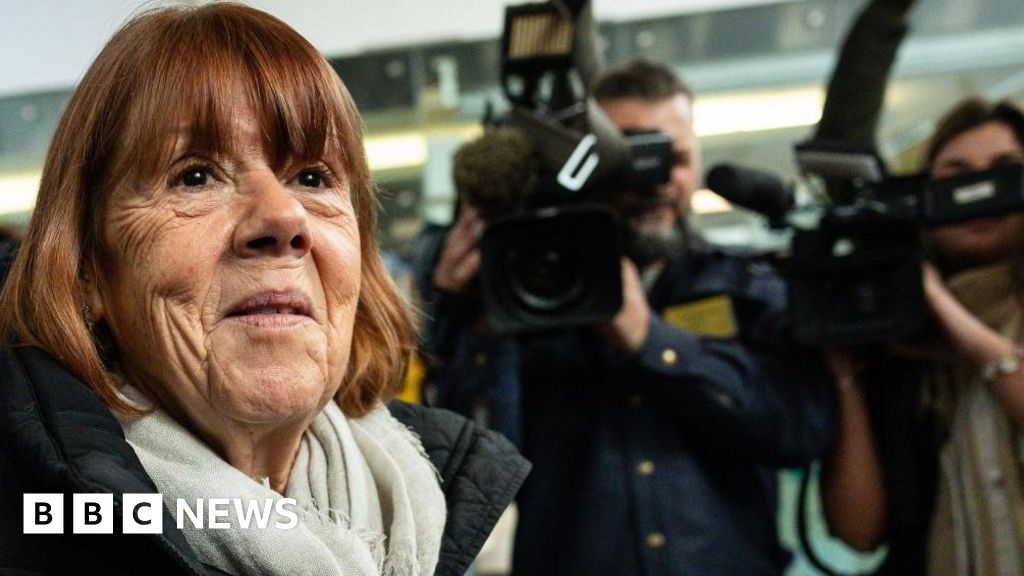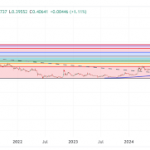 CLEMENT MAHOUDEAU/AFP
CLEMENT MAHOUDEAU/AFPJudges in the French city of Avignon will hand down verdicts on 51 men on Thursday in a mass rape trial that has turned a 72-year-old woman into a feminist icon.
For almost a decade, Gisèle Pelicot was drugged by her ex-husband Dominique, who then invited dozens of men he had recruited online to have sex with her in her bed at home while she was unconscious and unaware.
It was her decision to waive her anonymity and throw this trial into the open – in her words, making “shame swap sides” from the victim to the rapist.
Although he admits the charges against him, most of the other men on trial deny what they did was rape.
Prosecutors have asked for jail sentences ranging from four years to 20 years, the maximum sentence for a charge of aggravated rape.
One of the defendants, who has admitted the charges, has said the trial was rushed and “botched”.
Campaigners say this case proves the need for consent to be built into France’s rape laws, as in other European countries.
What is the case is all about?
From 2011 to 2020, Dominique Pelicot plied his wife with tranquilising drugs and sleeping pills without her knowledge, crushed them into powder and added them to her food and drink.
Gisèle Pelicot suffered memory loss and blackouts because of the drugs and she has spoken of 10 years of her life that have been lost.
He was eventually caught because a security guard reported him to police for taking photographs under women’s skirts in a supermarket.
“I thought we were a close couple,” she once told the court. Instead, her husband was going on a notorious but now banned website called Coco.fr to invite local men to their home to have sex with her while she was comatose.
“I was sacrificed on the altar of vice,” Gisèle Pelicot said early in the trial.
Since the start of September, Judge Roger Arata and his four colleagues have heard how 50 men, now aged between 27 and 74, visited the Pelicots’ home in the village of Mazan.
Who are the accused?
 Benoit PEYRUCQ/AFP
Benoit PEYRUCQ/AFPDominique Pelicot has admitted all the charges against him – drugging and raping his wife and recruiting dozens of men to rape her. Prosecutors want the judges to hand him the maximum 20-year jail term for aggravated rape.
“I am a rapist,” he has told the judges. “I acknowledge all the facts [of the case] in their entirety.” He has begged his ex-wife and three children for forgiveness, but his actions have torn the Pelicot family apart.
The other defendants come from all walks of life and most of them are from a 50km (30-mile) radius of the Pelicots’ village of Mazan. The fact they are firefighters, security guards and lorry drivers has earned them the name Monsieur-Tout-Le-Monde (Mr Everyman). Most of them have children too.
Fifty of the 51 are accused of aggravated rape and attempted rape.
Romain V, 63, is facing 18 years in prison if found guilty. He is accused of raping Gisèle Pelicot on six separate occasions while knowing he was HIV-positive. His lawyer says he could not have passed on the infection as he had years of treatment.
Another 10 men could face sentences of 15-17 years, and prosecutors are seeking jail terms of 10-14 years for 38 of the others.
Ahead of the verdicts, one of the few men who has admitted rape told the BBC through his daughter that many people had made up their minds right away: “There was not enough time. For me it was botched work.”
The average jail term for rape in France is 11.1 years, according to the French justice ministry.
One man is accused of aggravated sexual assault rather than rape. Prosecutors say Joseph C, a retired sports coach and grandfather of 69, should face the lightest sentence of four years in prison.
Some of them have apologised for their behaviour, but many have not.
Cyril B said he was sorry to Gisèle Pelicot.
“I’m ashamed of myself, I’m disgusted,” said Jean-Pierre M this week. His lawyer hoped that the judges would take account of his contrition.
What makes this case unusual?
Not only has this case been held in full view of the public, but the evidence against all the accused was recorded on video by Dominique Pelicot at the time and then played out in court.
Gisèle Pelicot, who has divorced her husband, said the men “treated me like a rag doll”. “Don’t talk to me about sex scenes. These are rape scenes,” she said.
Therefore none of those accused has been able to challenge the allegation that they were in Gisèle Pelicot’s room while she was comatose.
Their defence has relied on the definition of rape, because it currently involves any kind of sexual penetration “by violence, coercion, threat, or surprise”. That means prosecutors must prove intent to rape.
Public prosecutor Laure Chabaud told the court that no-one could say any more that “since she didn’t say anything, she gave her consent – that belongs to a bygone age”.
Thousands of people have joined protests in support of Gisèle Pelicot in France. And women have stood outside the court every day chanting one of the phrases her lawyers said in court: “Shame is changing sides.”
Why has Gisèle Pelicot become so important?
 MIGUEL MEDINA/AFP
MIGUEL MEDINA/AFPGisèle Pelicot has attended almost every day of the trial, appearing at the court in her sunglasses just before nine o’clock.
Her decision to waive her anonymity is highly unusual, but she has stood firm at every moment. “I want all women who have been raped to say: Madame Pelicot did it, I can too.”
But she has been clear that behind her facade of strength “lies a field of ruins” and despite the widespread acclaim for what she has done, she is a reluctant hero.
“She keeps repeating, ‘I am normal,’ she does not want to be considered as an icon,” her lawyer Stéphane Babonneau has told the BBC’s Emma Barnett.
“Women generally have a strength in them that they can’t even imagine and that they have to trust themselves. That’s her message.”
How this case has shaken France
Lawyers for the 51 defendants have highlighted the ordinary lives they led, although a court-appointed psychiatrist Laurent Layet testified that they were neither ordinary nor “monsters”.
In the early weeks of the trial, the then mayor of the village of Mazan told the BBC that the case could have been far more serious as nobody died.
But those remarks provoked an outcry across France and the mayor quickly apologised. He has since said he is withdrawing from public life.
The fact the trial has been held in public has meant every session has been reported at length and in detail.
Elsa Labouret of activist group Dare to be Feminist told the BBC: “[Gisèle Pelicot] decided to make this bigger than herself. To make this about the way we, as a society, treat sexual violence.”



